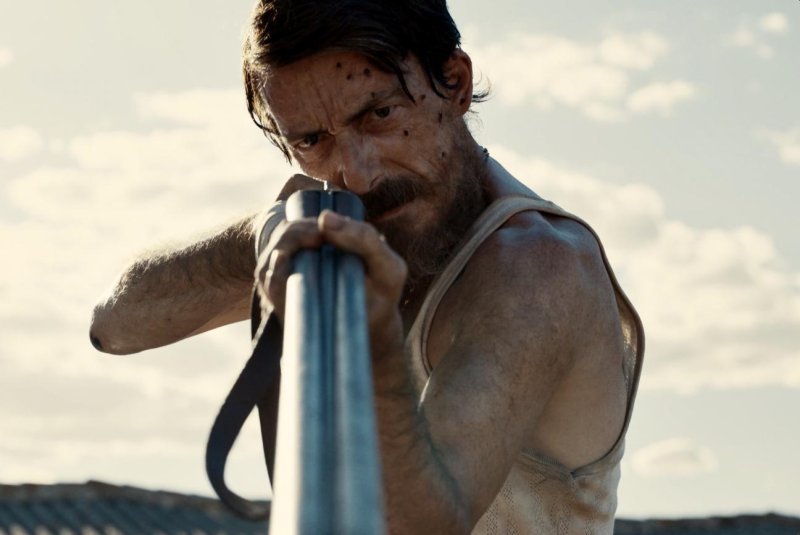The Wait (La Espera) had the North American premiere at Fantastic Fest in Austin, Texas, after world premiering at the Oldenburg Film Festival. The film is by director/screenwriter F. Javier Gutiérrez (Before the Fall, Rings) and is set in Spain in the 1970s. It has a Western genre feel, with wealthy ranchers and the staff they employ. The audience soon sees the class division from the top – the owner – to those who supervise the vast acreage and those who keep the land maintained. Those “regular workers” are the ones who toil the most and receive the least wages. With so much class distinction established early, it is no surprise that it is a story of the people in poverty taking the fall and the wealthy people don’t.
Don Francisco (Pedro Casablanca) owns a hunting estate, and Don Carlos (Manuel Morón) manages it, and the significant income-producing events are held for hunters wealthy enough to pay. Don Francisco hires Eladio (Victor Clavijo) to tend to the estate, moving his wife, Marcia (Ruth Díaz), and son, Floren (Moisés Ruiz), from a more comfortable setting in town onto a desolate ranch. The desolation takes a toll on the family, as well as not prospering as Eladio had anticipated, especially after working there for three years.
With the hunting season upon them, Don Carlos orders 13 hunting stands, knowing that the land is only designed for 10. Eladio warns Don Carlos of the limitations and dangers, including crossfire. Eladio doesn’t want to comply, but Eladio’s wife appeals to him as they need the extra money. Just as Eladio predicted the danger, it happens. Victor Clavijo is an excellent actor portraying a character that is a man of few words, and yet he conveys his feelings so visibly and well. A second gut punch follows soon after.
He begins to see things he has not seen during his three years there. This moment is when the supernatural and haunting images emerge, hinting that something more is at hand. I was able to grasp the meaning behind some of what he saw/found, especially the pieces of clothing for each family member that had been missing. The writer/director’s scenes of Eladio finding them where he did and then placing/spreading them out are very effective. I interpreted this as almost a predetermined fate for the family and when Eladio has the face-to-face meeting with the landowner.
I may not know the meaning of each scene of torment that Eladio is experiencing or hints from the supernatural or “Brujeria.” It is not required to see the meaning behind each discovery Eladio makes, but the audience knows that everything is becoming a living hell for him.
The Western setting at the beginning of the film changes, which is okay when done so effectively. Cinematographer Miguel Ángel Mora captures the desolate landscapes well and provides extreme close-ups of Eladio’s descent into the horrors.
The film is 99 minutes long and is next scheduled to be screened at the Sitges Film Festival.
Source: Fantastic Fest, Unfiled Productions, Sitges Film Festival
